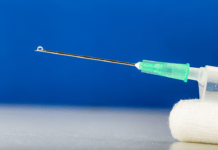I work in an office one day a week. I am a new grad, and this is my first job. We recently hired a new hygienist with years of experience. She saw one of my SRP patients at their first recall recently. This patient has poor oral hygiene and up to 9+ mm pockets. She said that whoever did the SRP did a bad job and the patient would need SRP again. She said that there was a lot of tenacious heavy deposits left over. She also put in the patient’s chart notes the patient commented that she spent more time doing one part of the teeth than I did the entire SRP treatment time.
I honestly just do not know what to think. I feel horrible that I did a bad job and she had to “fix it.” I am always welcome to constructive criticism, but I feel almost attacked by the way she wrote her notes. I took post-op radiographs and didn’t see any of this heavy tenacious calculus on the radiographs, which I would think would make a little appearance. My office knows about the situation but has kept completely quiet about it to me. Another co-worker did say they thought it’s the patient’s poor hygiene that led to so much calculus at their recall, rather than my “bad job.”
Can a patient build that much calculus after SRP in 5 months? I just don’t know what to think. I have never met her in real life, but I may soon, and I am so nervous. Is this problem common among new grads? My teachers always praised me on how thorough I scaled, but now I just feel like I am failing.
I’m so sorry you are being treated poorly in a passive-aggressive way by the other hygienist! Whether you are a new grad or not, we all miss calculus on accident, even the hygienist who is blaming you. It is not normal to be treated this way, new grad or not. Some patients are “calculus builders” depending on many factors, such as the composition of their saliva. So absolutely yes, a patient can build calculus this fast. Especially if their home care isn’t up to par, which in reality, is why they needed SRP in the first place. I feel this patient should not have appointments so widely spread (5 months), and their recall should be closer to three months, at the most, apart. Further, with pockets that are 9+mm deep, this patient probably should be referred to a periodontist. I mention this because our instruments become inadequate to remove deposits thoroughly at around a depth of 6mm.
While it’s very important for any hygienist to document thoroughly, to automatically assume it was that you did a poor job, and to write that in the patient’s chart notes, is hugely unprofessional. If there was a real concern, she should have come to you directly, not vented in patient notes. I have been in a similar situation where a very seasoned hygienist, who worked on my day off, would find anything to throw me under the bus. While she never criticized my scaling ability, she criticized everything else under the sun. A patient even told me that she was complaining to them that the “regular hygienist” didn’t sharpen her instruments (I sharpen at least once/week, and she never sharpened) so that’s why she couldn’t do a good cleaning on them. Mind you, this is a hygienist who sprays the instruments with disinfectant after treatment which causes massive corrosion. The point is, she was showing her seniority (of age) over me in a passive aggressive way, instead of being a supportive co-worker and team member, or taking the high road and speaking with me directly.
That fact that the office knows about this and hasn’t said anything to you speaks volumes. If there were a real concern about you doing poor work, your boss would have brought it to your attention (as they should). Maybe it would ease your mind if you chatted with the doctor about the situation. The doctor should be concerned, at the very least, of the unprofessionalism of their employee. It doesn’t make an office look good when co-workers are throwing each other under the bus and talking poorly about each other to patients.
It’s easier said than done, but please don’t feel like you are a failure! There’s a big difference between constructive criticism and unprofessional, passive-aggressive blaming. Talk to the doctor, then try your best to let it go. Remember, you can’t control other peoples’ behavior or actions, but you can control how you respond to them! Keep your chin up and keep smiling!












